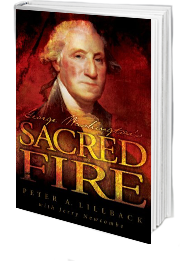Free Speech for Thee—But Not for Me?
“Liberal censorship” is technically an oxymoron. But today liberal censorship is a common reality.
Where once free speech reigned on college campuses and in other secular institutions (or at least it was so thought), today you have the totalitarianism of political correctness. Say the wrong thing, and you may be fired.
Dissenting Justice Samuel Alito said after the Supreme Court same-sex marriage decision in June 2015: “I assume that those who cling to old beliefs will be able to whisper their thoughts in the recesses of their homes, but if they repeat those views in public, they will risk being labeled as bigots and treated as such by governments, employers, and schools.”
Ann Coulter, conservative firebrand, has proven that free speech is all but dead in America. Her aborted attempt in 2017 to speak at Berkeley—the supposed birthplace of free speech in America—went up in flames. Almost literally.
Young America’s Foundation and the Berkeley College Republicans had invited Coulter to speak, but the school would not insure her safety, while the protesters vowed to violently shut her down. Coulter said to The New York Times: “It’s a sad day for free speech.”
As we see repeatedly, the “tolerant” folk are the most intolerant amongst us. Their attitude is simple: “Free speech for me, but not for thee…”
Historically, Christianity played a seminal role in the struggle for free speech—not that Christians have always gotten it right by any means.
The 17th century British Puritan writer John Milton, author of Paradise Lost, wrote a plea for a free press, Areopagitica. He stated, “Truth indeed came once into the world with her divine Master, and was a perfect shape most glorious to look on….For who knows not that Truth is strong, next to the Almighty? She needs no policies, nor stratagems, nor licensings to make her victorious.” God’s truth stands on its own, needing no artificial man-made props.
This reminds me of the quote from Church Father Tertullian, writing about 200 A.D.: “Truth asks no favours in her cause.” She doesn’t need any. Truth wins out in the marketplace of ideas.
In 1777, Thomas Jefferson noted that Jesus (“the Holy author of our religion”) is the reason we should allow civil freedom. This was in his Virginia Statute for Religious Freedom, passed 1786.
Jefferson wrote: “Almighty God hath created the mind free…all attempts to influence it by temporal punishment or burdens, or by civil incapacitations, tend only to beget habits of hypocrisy and meanness, and are a departure from the plan of the Holy author of our religion, who being Lord both of body and mind, yet chose not to propagate it by coercions on either, as was his Almighty power to do.” Jesus gives us freedom—who are we to deny it from others?
The alternative media continues to be a major lifeline for those in America who have dissenting views from the politically correct orthodoxy. We see a powerful example of this in WorldNetDaily, founded by journalist Joseph Farah. The pioneering independent online news source, wnd celebrated its 20th anniversary a few years ago. For his efforts, Southern Poverty Law Center profiles Farah as a supposed “Extremist” of hate. I emailed him their outrageous, derogatory profile of him. He emailed me back, “Same old. Same old.”
One of the saddest aspects of the Coulter-Berkeley story was the statement from former Democrat Chairman Howard Dean, who said, “Hate speech is not protected by the First Amendment.”
Tragically, many in our society today—including liberal protesters shutting down conservatives and Christians from being able to speak—do so supposedly in opposition to “hate speech.” First of all, where does the First Amendment make a provision for silencing “hate speech?” And secondly, who defines what is real hate and what is not? It seems that “hate” now is often, “speech I disagree with.”
I know a brother in Christ, David Kyle Foster, who used to be a male prostitute in Hollywood. He once told me that he probably had slept with more than a thousand different men before the Lord saved him.
Foster has interviewed hundreds of former homosexuals and lesbians and people struggling with all sorts of sexual issues, who found healing through the gospel of Jesus. Up until a few years ago, these powerful, sensitive videos were available on Vimeo, which fashions itself as a high quality version of YouTube.
But Vimeo told Foster that all his videos had to be deleted because of their “hate messages.” Testimonials of lives set free through Christ are hate speech? That is another example of free speech for me, but for not for thee. It is also symptomatic of the growing problem of the left’s censorship of Christian and conservative expression in social media platforms.
Now, if only our universities and media companies could come to grips with the First Amendment as designed by our founders, how better off things would be.
